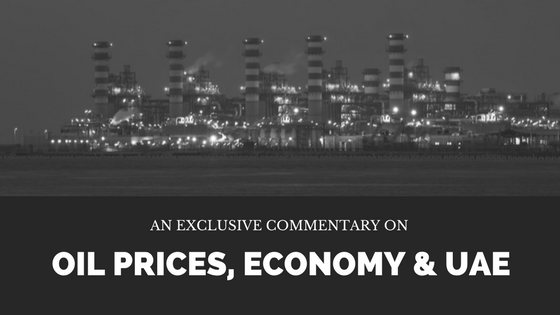With the Oil Price Across the World Still Suppressed, What Impact Has This Had on the Global Economy, and More Specifically, the UAE
Since 2014, fluctuating oil prices have contributed to recessions and economic instability. Dropping 70% from 2014 to 2016, the historic lows suggest that the global economy is in unchartered territory.
Fortunately, we have recently seen small signs of recovery, with the oil price at the time of writing (September 2017) around $50 to the barrel. This is a significant improvement from the low of $26 in 2016, although it is still nowhere near where it once was.
This suppressed oil price is largely down to the actions of the Organization of Petroleum Exporting Countries (OPEC). OPEC has changed its strategy to defend market share rather than price. They are doing this by simply producing more at low prices – one of the critical factors in the current oil price trajectory.
Thankfully, it is not all bad news, as the oil price is expected to stabilise in the near future at around $58 per barrel. It is unlikely, however, that it will reach the previous high of $113 in May 2008.
With low oil prices, the real losers are the oil exporting nations that will see a decrease in real income. This is especially poignant to countries such as Iraq and Qatar, with oil accounting for 90 percent of total government revenue.
One of the countries also not benefiting from the low oil prices is the UAE.
In 2011, oil exports accounted for 77% of the UAE’s state budget. This high reliance on the price of oil was seen in 2016 when the estimated fiscal deficit was at around 5.2% of GDP. This was brought about as the government revenue dropped by 12%, yet expenditure continued to increase by 4%.
Though the UAE has a sufficient amount of reserves to cushion the impact of low oil prices, they will be unable to maintain this deficit in future. By implementing VAT at the beginning of 2018, they are looking to secure a more stable source of government revenue. This tax is expected to yield Dh12bn in the first year, and up to Dh20bn in the second. This is just one of the ways that the UAE is looking to shift its dependency on oil to more reliable sources of income. In future, we can expect an economy that is much more resilient to oil prices than it is today.

